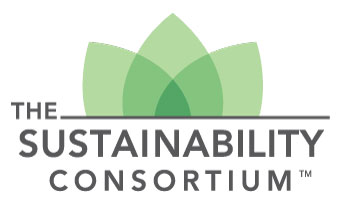Tesco and the Sustainable Consumption Institute Join The Sustainability Consortium

Tesco has announced that it is joining The Sustainability Consortium, an independent group of global businesses, academics, governments and non-governmental organizations that work collaboratively to drive innovation in consumer product sustainability. The Tesco-funded Sustainable Consumption Institute (SCI) at The University of Manchester will also become an academic member of the Consortium. Tesco joins 16 other European members that provide The Sustainability Consortium a strong foothold in the region.
Joining The Consortium is a further boost to Tesco’s work on sustainability and comes after its commendation as the top global retailer, and the best UK company, for its efforts in tackling climate change by the internationally recognized Carbon Disclosure Project. By focusing on environmental and social sustainability in the supply chain, The Consortium’s collaboration between Tesco and other global businesses will drive sustainable production and consumption in the consumer goods market. This partnership builds on The Consortium’s recent opening of a European branch at Wageningen University & Research Centre in The Netherlands.
Tesco estimates that it saved £200 million in global energy costs last year by going green and aims to be a zero-carbon business by 2050. In addition to opening the world’s first zero-carbon supermarket2, Tesco has carbon footprinted over 1,100 products since 2008, currently the largest product footprinting project undertaken by any retailer.
“Successful collaboration between leading global businesses – whether they are retailers, wholesalers, suppliers or producers – will go a long way in helping companies reduce their carbon emissions and thereby reduce the carbon footprints of the products we sell. This will help consumers make more sustainable choices about the products they buy. The Sustainability Consortium has a great opportunity to show the world that living greener lives can be attractive and affordable and that small changes really do make a big difference,” comments Helen Fleming, Group Climate Change Director. “We’re proud to be a member of The Consortium and look forward to collaborating with the many other businesses and organizations.”
Professor Alistair Ulph, Executive Director of The University of Manchester’s Sustainable Consumption Institute said: “The SCI is looking forward to collaborating with the Sustainability Consortium on research projects where there are shared interests, such as developing product category sustainability profiles and a deeper understanding of how best to influence consumers to adopt more sustainable lifestyles. We are pleased to be the first UK University involved with the Consortium and look forward to collaborative research with their business and academic partners.
“We are pleased to welcome Tesco to The Sustainability Consortium,” said Bonnie Nixon, Executive Director of The Sustainability Consortium. “Tesco is one of many companies partnering with The Consortium to make us a truly global organization. Their expertise and leadership in both the retail and sustainability community will be a great asset as we work towards delivering the science and tools to drive a new generation of sustainable products.”
###
Notes to Editors:
About Tesco
Tesco has been named the best UK business overall for tackling climate change against other well known brands such as Sainsburys, Marks and Spencer and Morrisons. It was also the only UK business to appear in the top 10 of the CDP global ranking.
1. Tesco aims to become a zero carbon business by 2050 and has set targets to halve distribution emissions per case of goods delivered (against a 2006 baseline) by 2012 and to halve building emissions per sq ft (against 2006/7), by 2020. Tesco has also set targets to reduce the emissions of the products in its supply chain by 30% by 2020, and to help customers to reduce their own carbon footprints by 50% by 2020.
2. Tesco opened its third UK zero-carbon store in Welshpool this March, joining current zero stores already in Ramsey and Bourne. There is also one in the Czech Republic, one opening this autumn in Thailand, and more planned across the Group.
3. Our new Daventry distribution centre opened in May and includes a number of low-carbon features to reduce its carbon footprint, including being directly connected to the rail network which reduces distribution network emissions through the use of more trains and fewer trucks.
4. Giant wind turbines power three of Tesco’s grocery distribution centres in Daventry and Newport. Each of the 90 metre high, 800 kw wind turbine produce a significant amount of the centres’ energy needs, with each turbine able to produce the equivalent amount of renewable energy required to power 500 domestic homes. Any surplus power is exported back to the national grid to meet local energy needs.
Follow us on Twitter at @TescoMedia
About Sustainable Consumption Institute (SCI)
In 2007, Tesco committed £25 million to create a new Sustainable Consumption Institution (SCI) at the University of Manchester. The SCI is a multidisciplinary centre of global excellence, researching major national and international issues associated with sustainability and encouraging customers to adopt more sustainable lifestyles. Among its flagship projects, the SCI is focusing on how to make household consumption behaviour more sustainable, how to drive environmental innovation processes through the supply chain, and how to model climate change scenarios with a focus on food and transport. For more information, visit www.sci.manchester.ac.uk
About The Sustainability Consortium
The Sustainability Consortium, (TSC) is an independent organization of diverse global participants that work collaboratively to build a scientific foundation that drives innovation to improve consumer product sustainability. TSC develops transparent methodologies, tools, and strategies to drive a new generation of products and supply networks that address environmental, social, and economic imperatives. The Sustainability Consortium advocates for a credible, scalable, and transparent process and system. The organization boasts over 75 members from all corners of business employing over 57 million people whose combined revenues total over $1.5 Trillion. Arizona State University and the University of Arkansas jointly administer The Sustainability Consortium, which also has a European Office at Wageningen UR in The Netherlands. Learn more at www.sustainabilityconsortium.org / Twitter: @TSC_news

